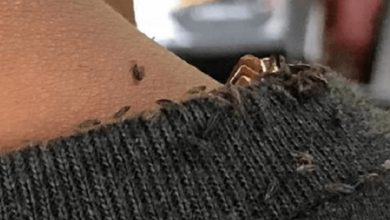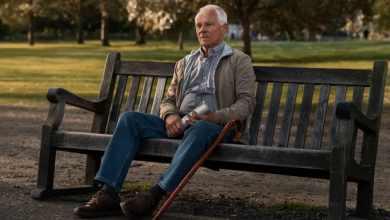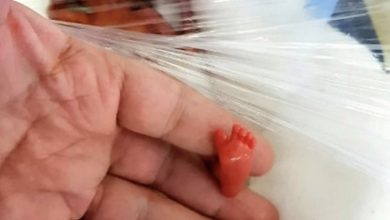My boyfriend mocked my voice and said I talked too much. A week later, his career and family were gone.

“My job bores everyone,” my boyfriend said with a smirk. “Just stop talking.” So, I did. And that silence destroyed everything he thought he controlled — his job, his family, and his spotless reputation. Then, when disaster struck, he tried to make me the villain. What he didn’t know was that I had proof of everything.
For months, Felipe had been making small, sharp comments about the way I talked. Little remarks hidden as jokes. He’d tease that I could “talk someone into a coma” or ask if I’d ever learned how to be quiet. Each time, I laughed it off, telling myself he didn’t mean it. But the truth was, his “teasing” was cutting me to pieces, one slice at a time. I started second-guessing myself every time I opened my mouth.
The moment that changed everything happened on a Saturday night, at his best friend’s backyard party. The air smelled like grilled meat and summer flowers. String lights hung between trees, and laughter floated in the air. I was talking to Audrey, his friend’s wife, feeling genuinely happy for the first time in weeks. I’d just gotten a big promotion — the kind that comes after months of late nights and endless effort. I was proud of myself and wanted to share that joy.
But Felipe didn’t like it.
He walked over, beer in hand, pretending to smile. He stood behind me for a few seconds, listening, before sighing loudly enough for the whole group to hear.
“Jesus, can you ever stop talking?” he said, his tone dripping with sarcasm. “Nobody cares about your job, okay? You’re boring everyone.”
The group went silent. The music faded into the background.
I felt every eye turn toward me. My cheeks burned, my mouth went dry. Felipe laughed, a cruel, hollow sound. He raised his beer slightly, gesturing at me. “This is what I deal with every single day,” he said. “A never-ending stream of useless noise.”
He turned his back and started talking to someone else, as if I didn’t exist.
I didn’t say another word for the rest of the night.
The ride home was unbearable. Felipe hummed along with the radio, happy and relaxed, while I stared out the window. When we got home, he seemed lighter than ever.
“This silence is nice,” he said, grinning. “We should do this more often.”
He had no idea that moment marked the beginning of his downfall.
I stayed completely quiet the next morning, too. During breakfast, he seemed delighted, sipping coffee like a king. “This is perfect,” he said. “Peace and quiet.”
He didn’t know what that quiet would cost him.
Monday morning came — and with it, the first crack. Felipe had an important meeting, a huge presentation that could decide his future at work. Normally, I’d wake him up, remind him of his schedule, pack his files, even pick out his tie. That morning, I said nothing.
He overslept by two hours.
When he finally woke up and saw the time, he went into full panic mode — tripping over shoes, tearing through drawers. “Why didn’t you wake me?” he yelled, spinning around the room.
I just sat on the bed, silent, watching him unravel.
His boss called while he was still getting dressed, his voice cold and final. “Don’t bother coming in,” he said. “We’ll handle it without you.”
Felipe threw his phone against the wall. “This is your fault!” he screamed. “You could’ve said something!”
I didn’t reply.
The next day, his mother’s 60th birthday rolled around — a big deal in his family. Normally, I’d plan everything: the gift, the restaurant, the cake, even the phone reminders. This year, I did nothing.
She left six emotional voicemails, crying that her only son had forgotten her. Felipe didn’t check his phone until that night. When he heard them, his face turned pale.
“She thinks I hate her!” he shouted. “You did this on purpose!”
I just looked at him and said nothing.
By midweek, his whole family was angry. His mother called his sister, who called him in tears, accusing him of being heartless. Every call, every text made him angrier. “You’re insane,” he shouted at me. “You want to ruin me.”
Still, I stayed silent.
Then came Tuesday, and another twist of fate. One of Felipe’s coworkers, Maria, dropped by to deliver files he’d forgotten. I opened the door, said nothing, and just stared at her blankly.
“Are you okay?” she asked, her eyes scanning me. “Did Felipe hurt you?”
I just looked at her, wide-eyed, unmoving.
She backed away slowly, her face filled with alarm.
An hour later, Felipe got a call from HR asking if everything was alright at home. Maria had reported a possible domestic abuse situation.
He tried to explain, but the more he talked, the worse it sounded. By Thursday, HR had called him in for an official meeting about “behavioral concerns.”
Friday night was the company gala. It was supposed to be his chance to recover some dignity — but I ruined that without saying a word.
Every time someone tried to make small talk with me, I just smiled faintly and said nothing. Felipe panicked, telling everyone I was “just shy.” Nobody believed him. The CEO’s wife pulled me aside in the bathroom, pressing pamphlets for a women’s shelter into my hand.
When I didn’t respond, she grew alarmed and called security. Moments later, HR approached Felipe and told him he was being placed on leave while they “investigated reports” about his behavior.
The look on his face — that mix of shock, rage, and humiliation — was priceless.
Saturday, his friends came for their usual game night. I served snacks in silence while Felipe tried to act normal. Finally, Mark, his best friend, asked, “What’s going on with her, man?”
Felipe laughed awkwardly. “She’s just mad at me. She’ll get over it.”
Mark frowned. “Get over what?”
And Felipe, cornered and desperate, told them what he’d said at the party — how he’d told me to “shut up” in front of everyone.
The room went silent.
Mark stood up, shaking his head. “You deserve whatever’s happening,” he said. Then he walked out. One by one, the others followed.
The moment the door shut, Felipe threw a beer bottle at the wall, glass exploding everywhere.
By Sunday, one week after he’d praised my silence, Felipe had lost everything that mattered to him. His mother refused to speak to him. His friends were gone. HR had suspended him. And he was starting to panic.
“Just say something!” he shouted, following me around the apartment. “One word! Please!”
I didn’t.
When I went to the garage to grab juice from the spare fridge, he followed, still yelling. The garage was packed with junk — old paint cans, rusty tools, half-broken shelves.
He was waving his arms wildly, yelling about how I’d “ruined his life.” One of the shelves started to shake.
“You know what?” he yelled. “You’re useless! A heavy, boring woman who finally shut up — the best version of you!”
And then the shelf gave way.
The metal bent with a groan, and the heavy paint cans began to fall. Felipe turned too late. They crashed down, one after another, slamming into his shoulder and head. He screamed, stumbling backward as paint and blood mixed on the floor.
I pulled out my phone and dialed 911, holding it open without speaking.
“911, what’s your emergency?” a calm voice said.
Felipe looked at me, bleeding and furious. “You did this on purpose! You tried to kill me!”
I didn’t answer.
The dispatcher said, “Ma’am, if you can hear me, please make a sound.”
I stayed silent until she said, “We have your location. Help is on the way.”
Eight minutes later, sirens blared.
The paramedics arrived first, finding Felipe sitting against the wall, clutching his head. They worked quickly, checking his pulse, cleaning his wounds. He kept yelling that I’d “set him up.”
When the police officer arrived — Officer McCarti — he took statements.
“Old shelf,” I said simply. “It fell.”
He asked if Felipe had touched me. I silently showed him the dark finger marks on my arm where Felipe had grabbed me earlier. The officer took photos, his face expressionless.
When Felipe’s sister showed up screaming that I’d tried to “murder” her brother, security had to drag her away. The officer watched calmly, writing notes.
Eventually, the doctor said Felipe needed stitches and would stay overnight. When the officer came back, he said the accident was caused by faulty shelving — no crime committed.
Felipe screamed that I was getting away with “attempted murder.”
I walked out of the hospital without looking back.
I didn’t go home. I couldn’t. Instead, I called Audrey, my friend from the party.
“I heard about everything,” she said. “Come stay here. I’ll make up the guest room.”
That night, I packed fast — documents, cash, clothes, and my laptop — and left.
The next day, Officer McCarti called again. “Those bruises might qualify for a domestic violence report,” he said gently. I told him I’d think about it.
A few days later, I went to the courthouse and filed for a protective order. The judge approved it immediately. Felipe was served the papers at his office. HR also finished their investigation and demoted him to a data-entry position in the basement.
He sent me dozens of angry texts and desperate voicemails. I saved them all.
I found a small studio apartment above a bakery. Every morning, the smell of fresh bread filled the air. It wasn’t much, but it was mine.
In therapy, I learned that silence can be powerful — it can protect, or it can destroy. I’d used it for both.
Now, I speak only when I choose to. My voice isn’t loud or nervous anymore. It’s calm, steady, and sure.
And for the first time in years, it belongs entirely to me.










